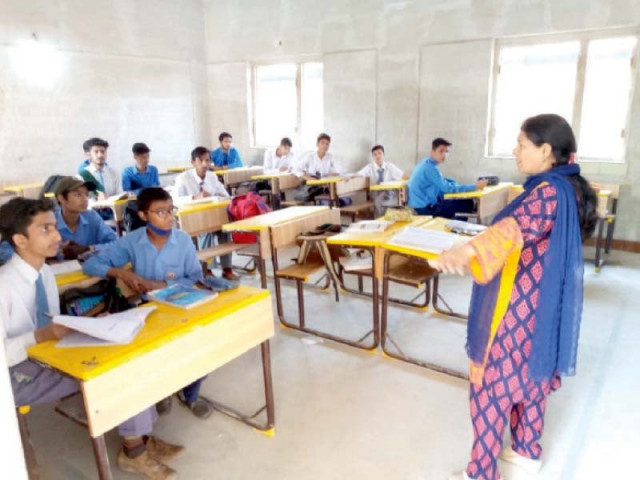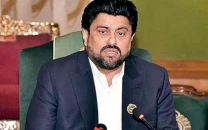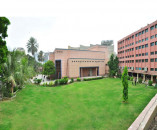Sindh’s literacy rate stands at 61.8%
37% of a total 44% out of school children in the province are girls

At a time when significant efforts are being made to usher in an educational revolution in the world, Pakistan's literacy rate has seen only a minimal increase, rising from 62.4 per cent to 62.8 per cent, with a provincial literacy rate of 61.8 per cent.
According to the Pakistan Economic Survey, a staggering 32 per cent of children in Pakistan are out of school, with a distressing 44 per cent in Sindh alone. Notably, 37 per cent of these out-of-school children are girls.
Addressing this issue, Aftab Ahmed Shaikh, Director of Non-Formal Education in Sindh, highlighted that the Sindh Education Literacy Department's data reveals 10.2 million children enrolled in the formal school system, while 64,000 children are part of the non-formal education system at various locations.
These children receive specialised instruction, often facilitated by NGOs and private sector partnerships. Raising awareness among parents about this alternative is crucial.
Read ‘Schools on Wheels’ introduced in Sindh with Google support
Today, Pakistan joins the world in celebrating "Promoting Literacy in Pakistan," aiming to shed light on the importance of education for millions of illiterate individuals. This endeavour offers hope and access to education for those who cannot even write their own names.
In Pakistan, where the literacy rate stands at 62.4 per cent, and in Sindh, at 61.8 per cent, challenges persist. Shaikh attributes the low literacy rate to a lack of awareness and resources. "Many parents struggle to provide timely education due to economic constraints," he said. However, he emphasised that even for those who are over-aged, the non-formal education system offers a viable solution.
"This system operates alongside formal education, providing specialised curricula and accelerated learning opportunities. Currently, about 64,000 children benefit from this system, while 10.2 million attend formal schools. Nonetheless, four million children require additional support to access quality education," he added.
Shaikh underscores the importance of considering education as a service rather than a business, necessitating both government initiatives and social responsibility.
To boost literacy rates, the Sindh Education Department is launching a door-to-door campaign. The education minister-led initiatives aim to involve directors from all regions in this campaign and encourage parent involvement activities.
These efforts aim to ensure that World Literacy Day, celebrated on September 8, 2023, serves as a catalyst to reach every child with quality education. Local education authorities, teachers, and community leaders will play vital roles in out-of-school enrollment campaigns.
Rafia Mallah, Additional Director of Registration Private Institutions, encourages school principals to celebrate World Literacy Day and conduct brief interactive sessions with students during morning assemblies, emphasising the significance of literacy.
On this occasion, human rights organisations and groups dedicated to improving literacy rates have organised various events across cities.
Published in The Express Tribune, September 8th, 2023.



















COMMENTS
Comments are moderated and generally will be posted if they are on-topic and not abusive.
For more information, please see our Comments FAQ